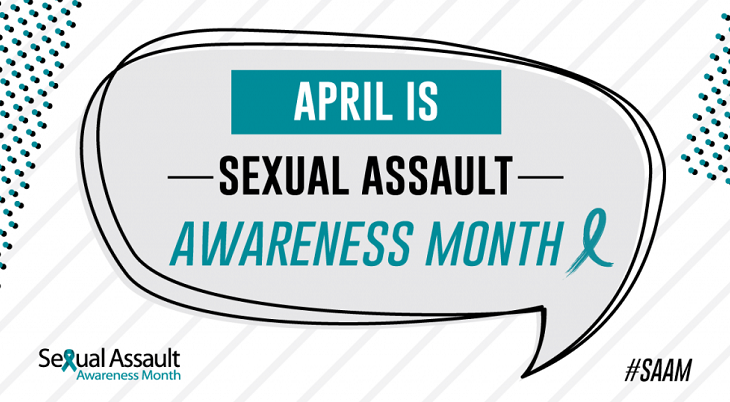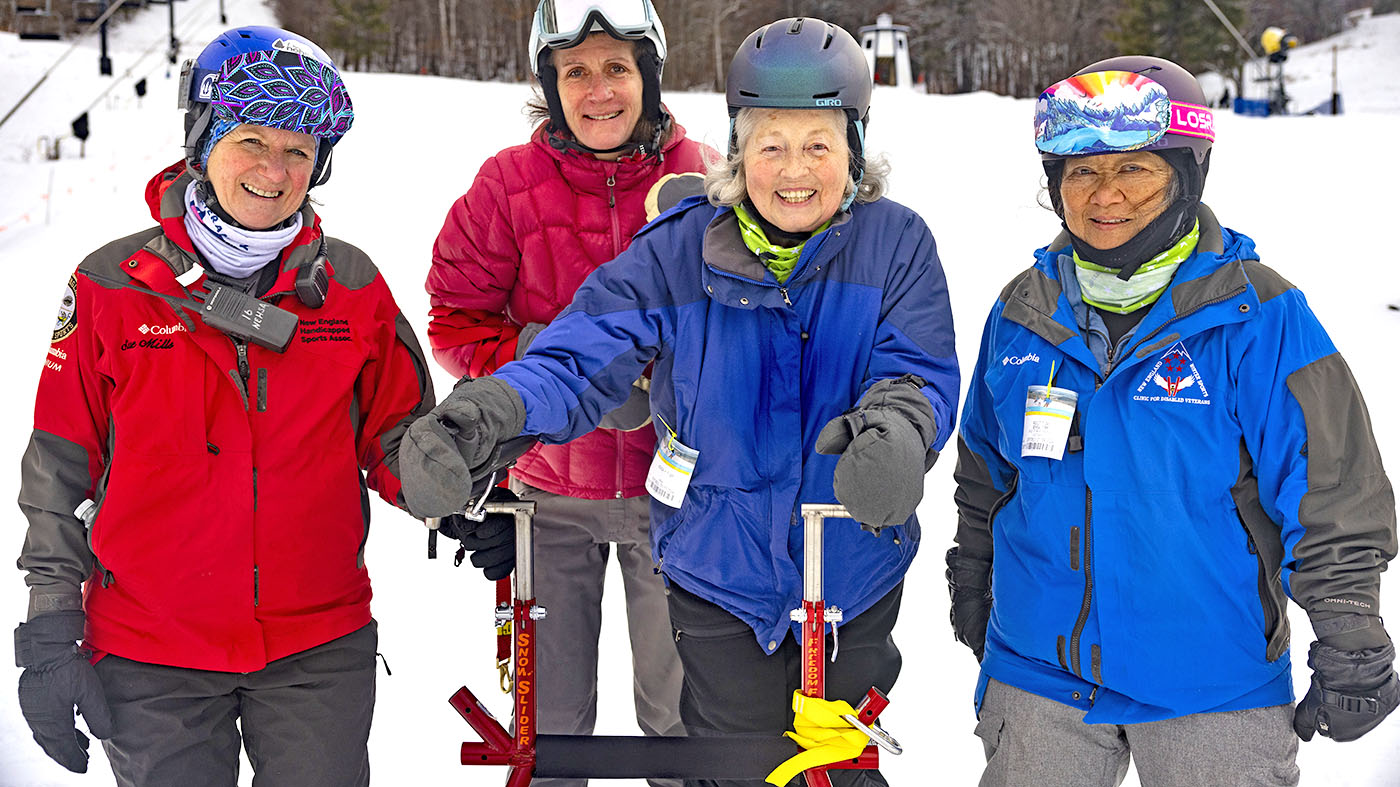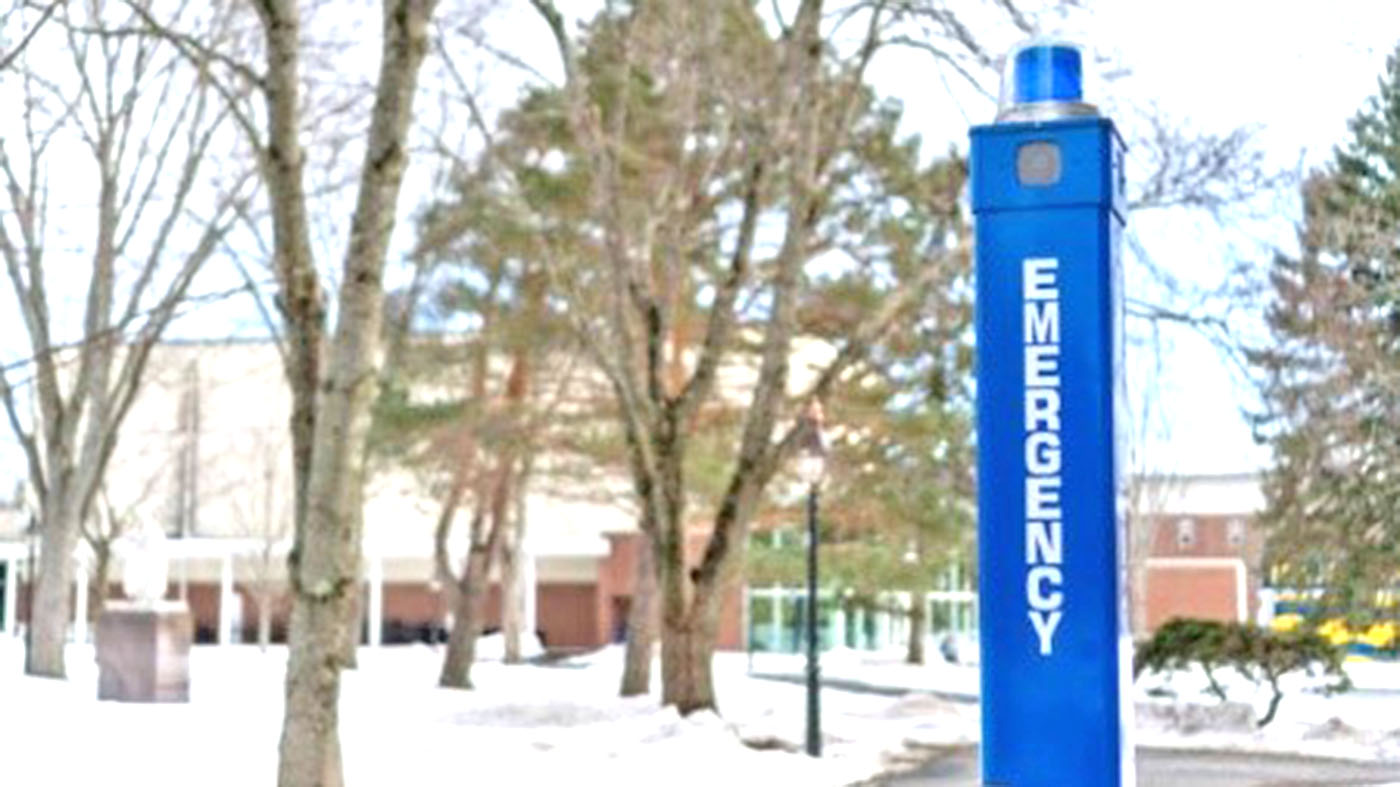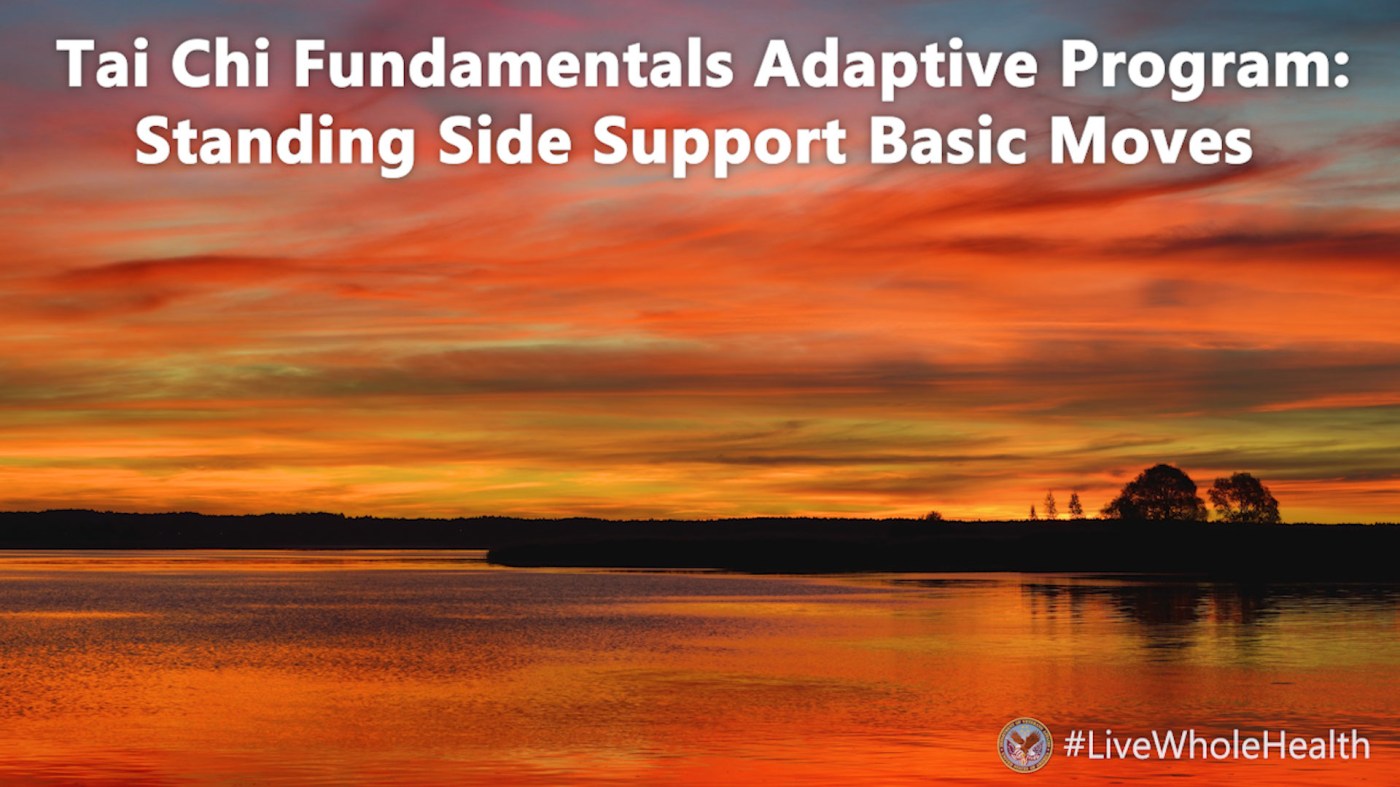Sexual Assault Awareness Month (SAAM) is an annual observance in April to raise public awareness about sexual assault. VA’s SAAM campaign focuses on sexual assault and sexual harassment occurring during military service – also known as military sexual trauma or MST. This year’s theme across VA is Creating Pathways to Healing: VA’s Services for Military Sexual Trauma Survivors.
VA chose this theme to highlight the many ways for Veterans to recover from sexual trauma, as well as the role of VA’s programs and services in helping Veterans find the paths to healing that are right for them. As Ashley Casto, Ph.D., who serves as the MST Coordinator at the Lexington VAMC, explains: “We need to avoid a one-size-fits-all approach, and it’s important to highlight the multitude of holistic and recovery-based treatments that are available through the VA.”
VA’s free MST resources
VA offers a wide range of services, free of charge, to support Veterans recovering from physical or mental health conditions related to their experiences of MST. No documentation of MST experiences is required, and Veterans may be eligible for free MST-related care even if they are not eligible for other VA services. In addition, every VA health care system has an MST Coordinator who serves as a point person for MST-related issues at the facility and can help Veterans access relevant VA services and programs.
Sarah Raymond, Ph.D., is the MST Coordinator at the Richmond VAMC. “Veterans may not always be ready for mental health treatment,” she notes, “but services such as chaplaincy and recreation therapy can be an alternate venue where they can feel heard, connect to others, and increase their ability to trust others, which may lead them to eventually participate in mental health treatment.”
About 1 in 4 women and 1 in 100 men report a history of MST when screened by a VA health care provider.
Although rates are higher among women, because of the larger number of men in the military about 40 percent of the Veterans seen in VA who report MST are men.
MST Coordinators and other VA staff show support year-round for the many Veterans who have been affected by MST, including during SAAM when they host special events to raise awareness and provide education about MST. In addition, VA’s Make the Connection campaign videos are available anytime and include many of Veterans sharing their stories of recovery from MST. These videos are a reminder that survivors are not alone in experiencing MST and finding their paths to recovery.
For more information about VA’s MST-related services, Veterans can speak with their existing VA health care provider, contact the MST Coordinator at their nearest VAMC, or contact their local Vet Center. VA and Vet Center facilities can be located at www.va.gov/find-locations. Veterans can also learn more about VA’s MST-related services at www.mentalhealth.va.gov/msthome.asp.

Topics in this story
More Stories
After Addison’s Disease and lumbar spine surgery, nurse Veteran Gayle Smith re-learned how to ski. “You have more courage than you think.”
Follow these 10 winter safety tips to stay warm, safe and protected during the cold winter.
Forget 'No Pain, No Gain'—try 'No Pain, More Gain' with Tai Chi! Calm the mind and gift yourself well-being in this week's #LiveWholeHealth practice.







Ugh I hate it when people say women are not combat veterans most would have been if it wasn’t the (redacted) companies we were in with (redacted) leadership…this makes me sooo angry some men need to keep their comments to themselves.
I get tired of hearing how the VA doesn’t help soldiers. I am not a combat soldier but served for 28.7 years in 7 military occupational specialties, and as a nurse. Life is what you make it. I was given a job, part time thru my struggles, advised on what route of march to take, to heal and compensated for my PTSD, sexual assault, and time in service. You need to understand what “YOU” are not doing to correct your situation. “You can lead a soldier to help, but if they refuse it in any way shape or form, they and their family suffers.” I am going to Washington, DC to present my case to the court to get justice against the perpetrators, I was put on expedite to be heard, my buddy representative was and went above the call of duty to help me and my family. All VA employees do the level best to help. This MST was and continues to be a nightmare for us but I always have and get answers from the hospital. Help yourself!! I could not have done it without them. I still live in ANGER, and with an attitude of justice, but that can only change if I make an effort to change it. I see many survivors quit the programs offered. DON’T QUIT. I serve in fifteen unit in my career. I learned one thing in training, NEVER QUIT. The battle is already won. I don’t want medals for my military service but the VA has given me back my life. Especially my loved ones. I lost my husband, my kids, my family to MST, but with the help of my representative I have won the war!
This article, the regulations and MST brochures all tout that an MST coordinator is available at each facility, but that is incorrect.
My VA handbook says all VA staff are trained about MST, also incorrect.
The C & P side of the VA says certain conditions are presumptive for certain categories of Vetetans, for example; Gulf War Veterans, Vietman Veterans or even Soldiers stationed at Camp Lejune.
My question is this; If 1 in 4 soldiers is sexually assaulted while on active duty, shouldn’t there be a presumptive condition set for that?
The VHA side says you can get free compassionate care and that all of these wonderful programs have been put in place….but that is only on paper and it is NOT being practiced. If you didn’t need a psychiatrist when you sought care through the VHA, you will certainly need one after trying to navigate this humiliating procrss and being, shunned, turned away or sent in meaninglessness circles to nowhere from provider to provider. It is humiliating, frustrating and uncontionable.
When I tried to reach the MST coordinator for the Pueblo CBOC, I found she was no longer in that position. No one knew who her replacement was and I finally I left enough voicemails that a week or so later I was called and told that the MST coordinator of the CBOC at the Colorado Springs facility was now handling both facilities (staffing shortages). I went to that facility and had to ask three different employees who the MST coordinator was. Two of the emloyees replied, “what is MST ?” Again, this was in the lobby and I didn’t feel like explaing the definition of MST. How can you work at VA and not know?
I’ve been denied treatment, told I wasn’t elligible for treatment because I didn’t serve long enough, etc etc. All while in front of everyone in the lobby. Try explaining why you are eligible for care, despite serving less than 24 months active duty, because you were repeatedly raped and stalked and threatened. I’ve been lied to and have had inaccurate derogatory information entered into my chart to cover up the mistakes and mistreatment.
It’s been 29 years since I first sought treatment through the VA and was turned away. Not much has changed except on paper.
Depressed and devalued from repetitive “Moral Injury”. I am seriously considering looking for an investigative journalist, to not only tell my story, but the story of 1 out of every 4 soldiers who have been sexaully assaulted at the hands of their fellow soldiers. The 1 out of 4 soldier’s who experienced “first hand” the threats to remain silent, the lies, the cover-up and coercion.
Shouldn’t PTSD from sexual assault be listed as a presumptive illness or condition? Afterall, the prevalence according to the VA is 1 in 4.
I wonder what the % of prevalence is required before an illness or condition can be categorized as presumptive. Is it 1 in 4? Hmmmmm.
When I first attempted to recognize how my rape affected my life; when I first tried to step outside of my denial – I sought to find a Marine to help me. If you have not been born again as a Marine, then-I apologize – but you don’t and can not understand the way my brain works. Everyone knows Marines are brain washed. That doesn’t make me necessarily believe I am better, but definitely different. I sought help for over a year, each time being spoke to like I was the first Marine to ask for a fellow Marine and that it was a stupid request. I was dismissed and feel swept under a rug. Things are NOT better for me personally AND I was re traumatized while in patient at a PRRTP. There is more but this is all I am capable of at this moment.
I was subjected to MST in 1981, within my first year of service. Knowing that reporting the JO perp would end with nothing but a fast track discharge for ME, I said nothing. This is the usual course of events, women did not report. After retirement I thought it would be safe to report it to the VA. Boy was I wrong! The response was nothing but disbelief from the administrative branch of the VA. A very snotty woman asked me “if it really happened, why didn’t you report it when it happened?” Since I have no proof the VA does not accept that it happened.
However, on the mental health side, I have a fantastic VA mental health counselor. Multiple VA doctors have confirmed that I do have issues from this event.
The idea of being in a group of men in any type of situation, like a Vet Center or a PTSD group is not one I can even contemplate.
After reading the above article , I noted that vets are referred to VAs or Vet Centers. I would like for people to realize that Vet Centers are only for combat vets. There are hundreds of thousands of vets who NOT combat vets and therefore not eligible for their services.
MST should have it’s own category and not lumped in with combat. I don’t think they belong as one. I don’t think the VA went far enough with their decision, as far as the fact that battery, death threats, and assault are not all the same and should be treated as such.
I don’t think MST should be lumped all together as PTSD, that’s way to general a way of dealing with this kind of trauma. Years ago when I first sought help, the VA was at best insensitive to my special needs. I believe that I have been a victim of a one fix cures all approach to dealing with my MST ! In the early 2000’s my family insisted that I get help other than once a month for 1/2 hour and got me into rehab at the Bay Pines VA in florida for a month of daily therapy . I was placed in general population, there was never any mention of MST and certainly no focus on this particular problem. Then after 28 days they threw me back out on the street without so much as a kiss. The whole content of my problem was swept under the rug, and they wouldn’t allow me any more time in that facility…REBT is a guilt based therapy and certainly doesn’t solely offer any constructive therapy for MST.
They don’t,
My husband a disabled vet due to back being injured while being a patient at VA in PT. He was diagnosed 3 years later as a paraplegic, but while in hospital was sexually
Abused by person in room with him and he couldn’t move. Bed went off and he was moved to another room. He told Social Workers, physicians, physiology, they lie to protect their hospital. My husband died because of VA neglect.Parapelgia was on his death certificate because he had severe bacterial infections caused from Spinal Cord
Injury. I had to listen to his nightmares about this man and he was scared for a Male to be around him after that .Where was his help.
The reason they kept it quite is that the man in room with husband showe a d exposed himself even to me and nurses. He was a mental patient that was moved there because he had been ganged raped in mental section.
Why did they put my husband in the room with him.May God have mercy on those that hurt my husband .